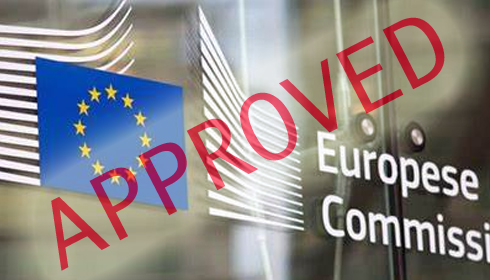
European Commission approves Roche's alectinib for early-stage lung cancer treatment
The European Commission has approved a new drug, alectinib, marketed as Alecensa, for people with a specific type of lung cancer known as ALK-positive non-small cell lung cancer (NSCLC), marking a significant step forward in the fight against lung cancer and providing new hope for patients who are at high risk of their cancer recurring after surgery. This approval is significant because Alecensa is Europe's first and only targeted medication for these individuals.
ALK-positive NSCLC is a kind of lung cancer characterised by a mutation in the ALK gene. This alteration promotes cancer growth. Alecensa targets this alteration, preventing cancer cells from developing.
After surgery, Alecensa can now prevent the recurrence of ALK-positive NSCLC. In a large study known as ALINA, Alecensa demonstrated a 76% reduction in the risk of cancer recurrence or death.
"This approval means that for the first time, people in Europe who have had surgery for this type of lung cancer can treat with Alecensa to help keep the cancer from coming back," said Dr. Levi Garraway of Roche.
Professor Fabrice Barlesi, an expert in lung cancer, remarked, "Surgery alone is frequently insufficient for these patients. Alecensa delays the onset of cancer, which is a significant benefit.
The ALINA trial compared Alecensa to regular chemotherapy treatment. The results revealed that Alecensa was significantly more effective at preventing cancer from returning, particularly in the brain, where this form of cancer frequently spreads.
Alecensa's safety in this trial was consistent with that reported in other investigations. Most of the negative effects were moderate and expected.
Approximately 94,000 patients worldwide benefit from Alecensa's use for advanced ALK-positive NSCLC. Alecensa's latest European approval, which follows its approval in the United States earlier this year, means it can now benefit patients in the early stages of the condition.
Roche intends to seek clearance for Alecensa in more countries in order to make this critical medicine available to the greatest number of patients possible.
Doctors are encouraged to examine patients with early-stage NSCLC for the ALK gene mutation, as well as other indicators like EGFR and PD-L1, to determine who will benefit from targeted therapy such as Alecensa.